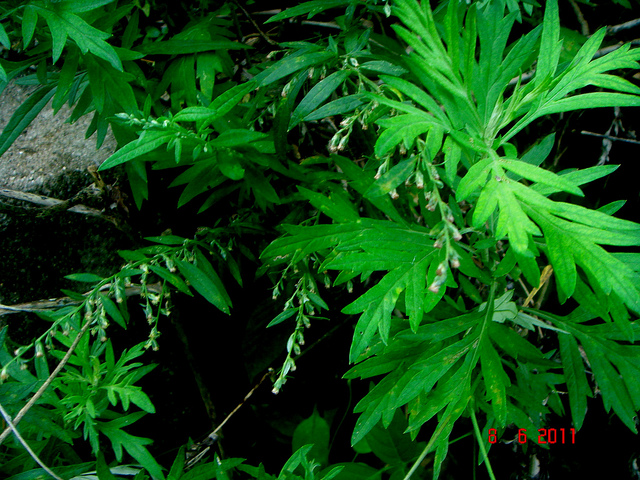SynBioWatch Press Release:
For Immediate Release
April 15, 2013
Contact: Lisa Archer, Gopal Dayaneni, or Tina Stevens, , (510) 982-1285, info@SynBioWatch.org
Pharmaceutical giant Sanofi Aventis and Amyris Biotech founder Jay Keasling have announced that they intend to replace the entire world supply of the World Health Organization’s preferred anti-malarial treatment derived from botanical artemisinin with a semisynthetic product which employs synthetic biology, a controversial, unregulated biotechnology.
Speaking at a conference in Cambridge, UK, Keasling said, “Moves are afoot to replace the entire world supply” of artemisinin, which is currently produced by thousands of farmers in Kenya, Tanzania, Madagascar, Mozambique, India, Vietnam and China who cultivate sweet wormwood, the natural source of artemisinin. The statement was confirmed in a release by Sanofi outlining their plan to begin large-scale production.
Currently unregulated, synthetic biology is an extreme form of genetic engineering that involves replacing the genetic material of microbes with entirely artificial human designed gene sequences, resulting in new organisms that are then ‘put to work’ as microbial ‘factories.’
The news raised a host of red flags among civil society organizations concerned about the impact on farmers, the lack of regulation and the potential impacts on humans and the environment.
Repudiating Sanofi’s claim that existing supplies are “inconsistent,” the Assured Artemisinin Supply Initiative says that farmers currently provide the world with an effective, stable supply of the drug. “The commercialization of synthetic artemisinin is a head-on assault against farmers who are growing Artemisia annua,” said ETC Group’s biotech watchdog, Jim Thomas. “With seemingly little consideration of the real-life feasibility of what he suggests, Keasling offers that these farmers can simply switch to growing potatoes or wheat instead. But these farmers are now growing Artemisia annua because it helps them bring in badly-needed income.”
“Studies of artemisia show that whole plant therapy is both more economical and more broadly beneficial than purified artemisinin, of which this new drug is an analogue[1],” said Jeff Conant, a campaigner at Friends of the Earth and author of A Community Guide to Environmental Health. “Using the whole plant decentralizes production, supports smallholder farmers, makes an effective therapy affordable, and can stimulate developing economies – all of which actually address the root cause of the malaria pandemic, which is poverty. This new drug does exactly the opposite.”
Furthermore, health and safety concerns about synthetic arteminisin have not been addressed adequately. “Whether botanically-derived artemisinin and synthetic artemisinin behave the same way in the human body is unknown,” said Jaydee Hanson of International Center for Technology Assessment. “Sanofi should make public all of that data before the drug is used in trials on patients. Prescribing a synthetic biology-produced drug such as artemisinin is an unregulated experiment. Who will be responsible for long-term follow-up to assess injury?”
In addition to Amyris, Keasling also holds posts at the University of California and Lawrence Berkeley National Labs, which are spurring the expansion of biotech development in the San Francisco Bay Area with state, federal and private money. According to Gopal Dayaneni of Movement Generation and host of SynBioWatch’s speaker series, East Bay Conversations: The Promises and Perils of Biotechnology, “Everything from zoning and tax law are being flipped to incentivize the growth of these labs. But the easily doled out false promise of “green” jobs, “clean fuel” and cheap drugs here at home is cover to justify wiping out land and livelihoods for families in the Global South.”
Over the past few years, despite concerns over regulation, ethics, and safety of both the process and products of synthetic biology, the industry has moved to commercialize a host of microbially derived products including cosmetics, flavors, fragrances, and pharmaceuticals.
In 2011, 58 organizations from 22 countries sent an open letter to the President’s Bioethics Commission disapproving of its lax recommendations on synthetic biology. Last year, over 111 civil society groups from around the globe endorsed “Principles for the Oversight of Synthetic Biology.” According to Tina Stevens, Director of the Alliance for Humane Biotechnology, “The well-founded concerns behind such actions are ignored while science-entrepreneurs dazzled by patenting possibilities launch projects that will net them millions — whether or not their promises are realized and in spite of feasible low tech alternatives”
For more information, visit: www.SynBioWatch.org
SynBioWatch is a network of civil society organizations that offers critical perspectives on the synthetic biology industry grounded in ethics and social, economic, and ecological justice (www.synbiowatch.org).
For a background briefing on the Synthetic Artemisinin Project and its possible impact on farmers see: http://www.etcgroup.org/content/case-study-artemisinin
####
